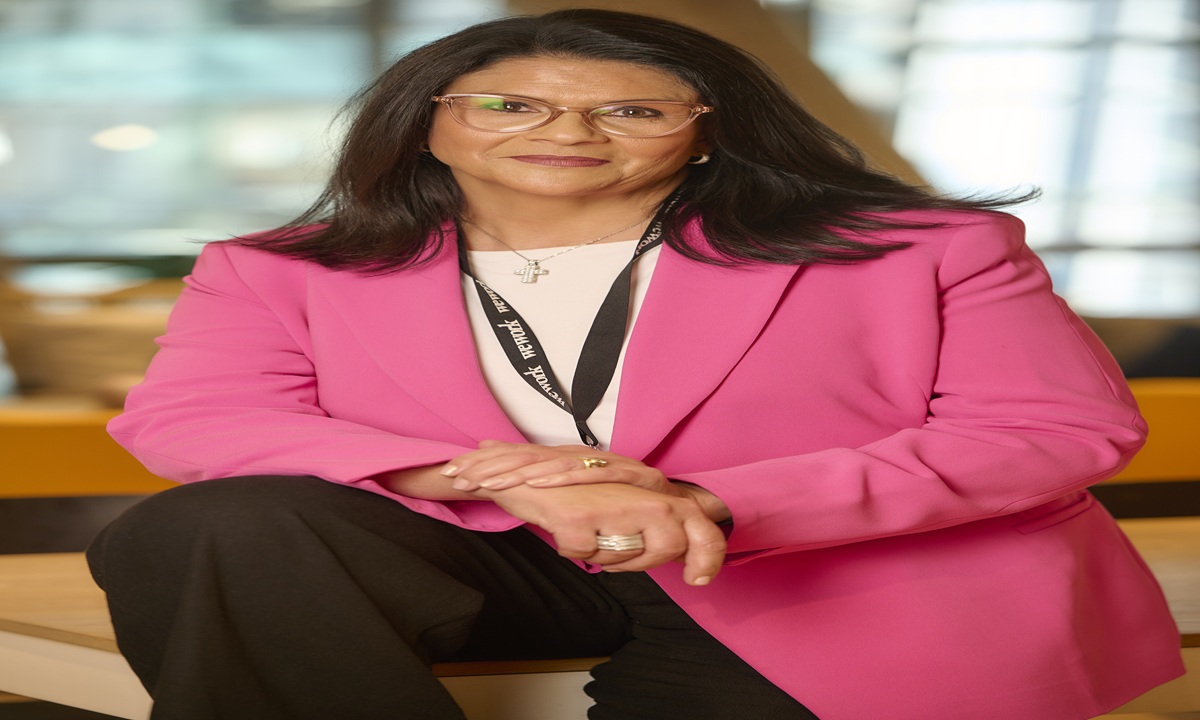Broadcasting
Startimes Says it Has 3m Nigerian Subscribers

William Masy, StarTimes Overseas Public Relations director has disclosed that about 3 million Nigerians are subscribed to the organisation’s products and services across the country’s six geopolitical zones.
William disclosed this while receiving a Delegation of Nigerian Journalists at the StarTimes Corporate Headquarters in Beijing, China.
According to him, Nigeria has been a big market for the company’s products and services in Africa.
“StarTimes, which was founded in 1988, has now established subsidiaries in more than 30 countries, including Rwanda, Nigeria, Kenya, Tanzania, Uganda, Mozambique, Guinea, Democratic Republic of Congo (DRC), South Africa and others.
“Nigeria is currently the largest market for our products and services than other countries. We currently have three million subscribers in the whole of Nigeria.
“On the whole, StarTimes currently has 10 million subscribers across these countries,’’ he said.
The organisation’s public relations director said that StarTimes had been selected for the Access to the Satellite TV for the 10,000 African Villages’ project.
He said that the company was prepared to assist the Federal Government of Nigerian in achieving its ongoing digitalization programme.
William, who also announced the company’s plans to soon embark on knowledge transfer to young Nigerians, added that about 80 per cent of its employees were Nigerians.
The company’s spokesperson also said that StarTimes was looking for a suitable place in Nigeria to establish its factory like it had done in Kenya and other countries.
“As soon as we are able to secure location rights, we will definitely establish our factory in Nigeria, because Nigeria is our big market.
“With a global vision, StarTimes began to expand its services to Africa in 2002 and has been working closely with African governments in promoting digitalization and information.
“StarTimes has introduced more than 480 quality international channels, most popular African channels and Chinese mainstream media channels.
“These programmes are broadcast in nearly ten languages, including English, French, Portuguese, Chinese, Swahili, Hausa Yoruba and others,’’ he said.
Broadcasting
Artificial Intelligence: The Indispensable Catalyst for Nigeria’s Agricultural Revolution

By Diana Tenebe, Chief Operating Officer, Foodstuff Store
Nigeria’s agricultural sector, a cornerstone of its economy, faces a critical crossroads. While employing a staggering 40% of the population and holding over 84 million hectares of arable land, the industry is hobbled by deep-seated challenges. Low productivity, a fragmented supply chain, poor infrastructure, and a lack of access to financial services are just a few of the hurdles that prevent the sector from reaching its full potential. Coupled with the unpredictable and severe shocks of climate change—from prolonged droughts to devastating floods—these issues threaten the food security of a rapidly growing population.

Diana Tenebe
To truly transform this vital sector, a new approach is needed, one that moves beyond traditional methods and embraces the power of technology. Artificial Intelligence (AI) is not just a futuristic buzzword; it is the imperative for Nigeria’s agricultural revolution. AI holds the key to unlocking higher yields, building resilience, and fostering an inclusive and sustainable food system that can feed a nation and drive economic growth.
The most immediate impact of AI is in the area of precision farming. By integrating AI with technologies like Internet of Things (IoT) sensors, drones, and satellite imagery, farmers can gain an unprecedented understanding of their land. AI-powered systems can analyse real-time data on soil moisture, nutrient levels, and plant health, providing actionable insights for targeted interventions. For instance, smart irrigation systems can optimize water usage, a critical resource in a country facing increasing water scarcity. AI-enabled drones can survey vast farmlands in minutes, identifying early signs of pests or disease and allowing for precise application of pesticides, reducing chemical use and cost. Early trials of these technologies in Nigeria have already demonstrated significant gains, with some reports showing a remarkable 60-70% increase in crop yields.
Climate adaptation is another area where AI’s role is indispensable. Nigeria’s farmers are on the front lines of climate change, enduring erratic rainfall and extreme weather events. AI can provide a shield against this volatility. By analyzing historical weather data and real-time forecasts, AI models can offer accurate, localized predictions. This allows farmers to proactively adjust their planting schedules, select climate-resilient crop varieties, and plan for potential risks, effectively mitigating the devastating impact of droughts and floods.
The economic benefits extend far beyond the farm gate. A significant portion of Nigeria’s agricultural produce is lost due to an inefficient and fragmented supply chain. AI can streamline logistics, optimize transportation routes, and enhance inventory management. By reducing spoilage and waste, AI ensures that more of what is harvested reaches the market, thereby boosting the incomes of farmers and providing a more stable supply of food for consumers. The success of Nigerian agritech companies like Crop2Cash, which has reportedly helped over 500,000 farmers increase their income by up to 70%, demonstrates the tangible economic impact of these technologies.
AI is a powerful tool for promoting financial inclusion and education. Millions of smallholder farmers, who form the backbone of Nigerian agriculture, are often excluded from formal financial systems due to a lack of collateral and credit history. AI-driven fintech solutions can bridge this gap by assessing creditworthiness using alternative data, making it easier for farmers to access the loans and insurance they need to scale their operations. AI-powered mobile apps and chatbots can also serve as virtual extension agents, providing personalized advice on best farming practices, pest control, and crop management, democratizing knowledge and empowering farmers to make better decisions.
Despite this immense potential, the journey towards widespread AI adoption is not without its hurdles. High upfront costs for AI-enabled equipment, a general lack of understanding and experience with these tools, and a preference for traditional methods are all significant barriers. Furthermore, infrastructural gaps, including poor roads and inadequate storage facilities, hinder the seamless implementation of these technologies. Data availability and computational capacity are also key challenges that need to be addressed.
However, the Nigerian government and a burgeoning ecosystem of agritech startups are already paving the way forward. The government’s vision is articulated in initiatives like the National AI Strategy, which aims to establish AI research centers and support R&D. Programs such as the Nigeria Artificial Intelligence Research Scheme (NAIRS) and the NITDA AI Developers Group are building the necessary skills among entrepreneurs and farmers. Strategic partnerships between government bodies, financial institutions, and innovative startups are creating localized solutions that are tailored to the unique conditions of Nigerian agriculture.
Ultimately, AI is not a luxury but an imperative for Nigeria to unlock its agricultural potential. Its successful integration will transform the role of the farmer from a manual laborer to a strategic planner and overseer of a smart, efficient, and sustainable food system.
By investing in infrastructure, fostering strategic partnerships, and prioritizing education and capacity building, Nigeria can harness the power of AI to feed its people, drive economic prosperity, and secure its place as a leader in the African agricultural revolution.
Broadcasting
Amaarae Crowned Spotify’s EQUAL Africa Artist for August

Spotify has named Ghanaian trailblazer Amaarae as the EQUAL Africa artist for August, spotlighting her as one of the continent’s artists who continues to push creative and cultural boundaries with every beat, lyric, and look.

Amaarae, born Ama Serwah Genfi, raised between Ghana and the U.S.A often pulls her musical inspiration from the cultures and genres she grew up with. She has consistently pushed the boundaries of sound and identity, with her unique fusion of alternative, pop, R&B, and Afrobeats cementing her place as a singular voice in modern music.
Her musical journey took a turn in a computer lab in Ghana in 2009, where she taught herself to make beats on a cracked version of FL Studio. That moment sparked the fire for a career that would go on to produce game-changing projects like “The Angel You Don’t Know” and global hits such as “SAD GIRLZ LUV MONEY”.
Amaarae’s inclusion on Spotify’s Global Impact List for the first half of the year, highlighting the most-exported Ghanaian songs, was no surprise. She has become a symbol of how African music is travelling further, faster, and louder than ever before.
With her latest album BLACK STAR she returns to her Ghanaian roots with bold energy, crafting what she calls a “rallying cry for youth culture around the world. This album is bringing the alternative community to the forefront and being fearless about that.”
“I navigate the music world with balance, willpower, and strength. The challenges are real, don’t get me wrong, but I put my blinders on, lock into tunnel vision, and get to work. And when I come across another woman on the journey, especially a Black woman, I do my best to share knowledge, create opportunities, and lighten the load where I can,” says Amaarae.
As part of Spotify’s EQUAL programme, which amplifies women’s voices worldwide, Amaarae joins a growing list of African women shaping the future through sound and self-expression.
“Amaarae embodies the spirit of boundary-pushing creativity that EQUAL stands for,” says Phiona Okumu, Spotify’s Head of Music for Sub-Saharan Africa. “Her artistry is bold, distinct, and unapologetically authentic – qualities that continue to inspire a new generation of artists across the continent and beyond.”
We sat down with Amaarae to learn more about her and her music:
1. What is that one surprising thing your fans might not know about you?
Amaarae: I’m one step away from being legally blind! My vision is a -7 and I have astigmatism!!
2. When did you realise that making music was in your destiny and what is your WHY for pursuing this craft?
Amaarae: When I moved back home to Ghana in 2009, I was learning how to make beats and record myself at the back of the computer lab. Someone had installed a cracked version of FL.
3. Which African songs or artists did you grow up listening to?
Amaarae: The list goes on and on. Daddy LUMBA (RIP), Terri Bonchaka, MzBel, Abrewa Nana, Obrafour’s legendary album Pae Mu Ka, Sarkodie, Kwadwo Antwi. I could go all day.
4. To someone who has never heard your music, how would you describe the sound, tone, and style?
Amaarae: Let’s encourage listeners to be curious and adventurous! If you’re reading this and you’ve never heard my music, I dare you to go listen! And tell me how YOU would describe my sound.
5. Any advice for someone dreading following their dreams?
Amaarae: The regret does more damage than the effort.
Broadcasting
Humans + Machines: Building the workforce of the future

By Ursula Fear, Senior Talent Programme Manager | Salesforce
Is AI coming for your job, or is it already working beside you? As its use becomes more routine, artificial intelligence is looking less like a threat and more like a teammate: answering queries, making decisions, chasing leads, processing invoices, and drafting content around the clock.

Ursula Fear, Senior Talent Program Manager, Salesforce
This new class of digital labour is changing how teams function, how targets are met, and how people spend their time at work. From now on, almost every job, team, and company will involve AI agents – systems that can analyse vast datasets, apply human-like reasoning, and act independently. Their presence is set to influence workflows, increase productivity, support innovation, and redefine roles across the organisation.
Rather than replacing people, AI is tilting the workload. Salesforce research shows that 23% of HR teams plan to redeploy employees into roles that make better use of their uniquely human strengths. At the same time, agentic AI adoption is projected to surge by 327% over the next two years (from roughly 15% adoption today to about 64% by 2027).
This shift is tied to anticipated productivity gains of 30% per employee and labour cost reductions of 19%, equating to about $11,000 in savings per employee annually, based on Organisation for Economic Co-operation and Development (OECD) wage averages. Rather than replacing people, organisations are preparing to reskill and redeploy workers, enabling humans to focus on higher-value roles that emphasise creativity, strategy, and interpersonal skills.
A recent Gartner poll further found that 95% of customer service teams intend to retain human agents to help define and guide the role of AI, reinforcing the value of a “digital first, not digital only” approach. Gartner further says that by 2027, half of the organisations that planned to significantly reduce their customer service workforce will abandon those plans, highlighting the limits of going fully “agentless”.
For African countries, the rise of digital labour presents an opportunity to build modern, inclusive workforces without being bound by outdated development models. But realising this potential depends on sustained investment in skills training, digital infrastructure, and equitable access to AI tools.
Train for tomorrow
Africa has the world’s youngest population. It’s bursting with entrepreneurial energy. But many young people still don’t have access to the tools and skills that will define the next era of work. If the continent wants to lead in the digital labour revolution, it should act now by investing in digital infrastructure, prioritising skills development, and forging partnerships that make future-focused training widely accessible.
Yes, the skills gap is real and broadband internet is still a luxury in many communities. But on the upside, AI training doesn’t require a university degree. Much of it is free, online, and accessible to anyone with a smartphone and a curious mind.
That opens the door to governments, educators, businesses, and civil society to step up to update school curricula, expand digital infrastructure, and support public-private training partnerships. All of this matters: not just for economic growth, but for social inclusion, too.
If these foundations are put in place, African countries could not only meet the needs of their growing population but also leapfrog outdated development models.
From entry-level to in-demand
When AI begins to handle the simpler tasks, it’s easy to worry about what’s left for those starting out. Entry-level jobs aren’t disappearing though. Instead of doing routine work, newcomers will now need to build skills in oversight, collaboration, and using AI tools effectively from day one. The ladder still exists; it just starts in a different place.
This will require a different kind of training – not just technical know-how, but in soft skills like empathy, adaptability, ethical judgement, and communication, which are all human traits that help teams thrive.
AI’s presence in the workplace may be concerning, with reports of job cuts due to its adoption (here, here, here, and here), but all is not as it seems.
Research suggests a more balanced perspective: One of the most comprehensive studies, from the National Bureau of Economic Research, tracked 25,000 workers across 7,000 Danish firms using AI chatbots. It found no significant changes to jobs, wages, or working hours. Productivity rose by around 3%, without leading to layoffs.
The St. Louis Fed found something similar. Based on large-scale surveys in the US, researchers reported one in four workers now use generative AI weekly, saving on average just over two hours a week. Spread across the entire labour market, that translated into a 1.1% productivity gain. Crucially, there was no sign this efficiency came at the cost of jobs.
Adding to this, a 2024 study by Mäkelä and Stephany analysed over 12 million US job listings and revealed that demand is surging for “AI-complementary” skills such as resilience, teamwork, digital literacy, and analytical thinking. These are the very human capabilities that help people work effectively with AI. The study found AI-focused roles are nearly twice as likely to list these skills, and they command wage premiums of 5–10%. Even more telling: the positive impact of these complementary skills outweighs the substitution effects of AI by up to 70%.
These findings all suggest that AI isn’t replacing workers; it’s helping them work smarter and more efficiently. To thrive in this blended future, we need to prepare today, by building the right skills, expanding access, and embracing AI not as a threat, but as a partner in progress.
Because the future of work won’t be entirely human, nor entirely automated – it will be a blend of both.

 E-Financial1 day ago
E-Financial1 day agoZenith Bank Slammed with ₦85m Fine for Freezing Account on Invalid Court Order

 Telecom2 days ago
Telecom2 days agoAirtel Nigeria CEO Identifies Data Boom, Nationwide Connectivity as Crucial Innovation Areas

 Telecom2 days ago
Telecom2 days agoNCC Tightens Rules of Corporate Governance for Telcos

 Broadcasting2 days ago
Broadcasting2 days agoMastercard Highlights Africa’s $16.5Bn AI Potential and Path to Digital Empowerment

 Telecom1 day ago
Telecom1 day agoTelcos Say Mobile, Internet Services in Nigeria may Collapse

 E-Business1 day ago
E-Business1 day agoHow to Avoid NIN Portal Lockout under New Restrictions — NIMC

 E-Financial2 days ago
E-Financial2 days agoZenith Bank rolls out drums for D’Tigress, rewards team with N200m

 News2 days ago
News2 days agoOlukoyede, EFCC Chair Denies Forcing Ojulari to Resign as NNPC Boss















